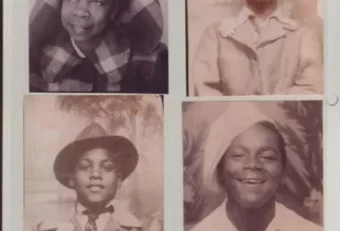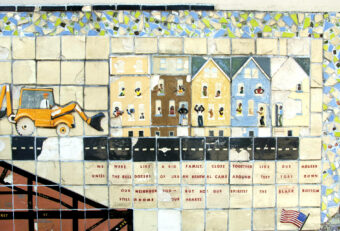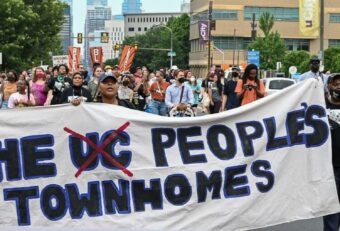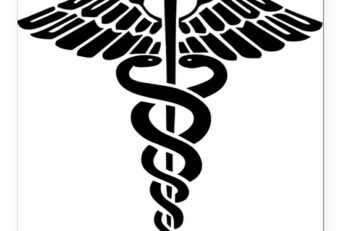Beginning in 1959, the University of Pennsylvania, Drexel University, Presbyterian Hospital, and other neighborhood institutions joined forces to carve University City out of West Philadelphia. With Penn as the leader, these institutions formed the West Philadelphia Corporation (WPC) to redevelop the neighborhood in a way that they believed would appeal to their faculty, staff, and students—in the process displacing, by one conservative estimate, nearly 600 low-income and Black American families (2,653 people in all). WPC members used their considerable influence to gain support for the project from Philadelphia’s City Planning Office and the Regional Development Authority, and to garner millions in urban renewal funding for the project from the federal government.
The large-scale displacement that took place during the 1960s is just one of many tragedies resulting from local higher education’s encroachment on the historic Black Bottom community. These events have produced aftershocks that continue to impact the life chances and racial disparities for descendants of both displaced and existing residents of the Black Bottom community. After the police murder of George Floyd, institutions of higher education across the country are making attempts to offer anti-racist remedies for past acts of systemic damage and wealth extraction from the Black community. In Philadelphia, there is arguably no clearer example of the need for higher education’s racial repair than the story of the Black Bottom. Below we have sketched out the basic parameters for a plan of reparative justice.
1. Land/Real Estate
The basis of economic wealth is land. We seek the acquisition of both public (city-owned) and private land (Penn/Drexel-owned); free ownership of houses in the Black Bottom with a 10 year property tax abatement and paid homeowner’s insurance; the building of daycare, afterschool, and recreational facilities, including the creation of parks and fields (greenspace); the creation of assisted living facilities for our Seniors; and the preservation of existing affordable housing, such as the University City townhomes at 40th and Markets.
2. Education
In the words of Malcolm X, “Education is the passport to the future, for tomorrow belongs to those who prepare for it.” To that end, we seek high-quality educational opportunities for our residents, particularly, our children. We seek the building of an elementary school on par with Penn Alexander, with preference given to children in the Black Bottom. In addition, we seek the development of vocational-technical programs and building trade programs with unions which will prepare our residents for careers in these industries. Also, we seek the development of literacy, STEM, robotics, and coding programs as well as programs teaching residents how to build and operate drones. We also seek admission and free tuition and room and board for all residents who wish to attend Penn and Drexel for undergraduate and graduate studies. In addition, we seek public access to all university-controlled libraries, recreational facilities, learning spaces, and museums on and off campus.
3. Healthcare
Historically, Black Americans have suffered staggering racial disparities in healthcare, health outcomes, and life expectancy, all of which has been highlighted and exacerbated by the current COVID-19 global pandemic. In order to reverse these disparities and improve health outcomes and life expectancy among Black Bottom residents, we seek free healthcare from the Hospital of the University of Pennsylvania and its associated medical and dental facilities, including, but not limited to, preventative care, nutrition seminars, dental care and treatment, substance abuse and mental health treatment, PTSD counseling, conflict resolution workshops, and health education programs, for all Black Bottom residents.
4. Preservation of Black Bottom Culture & History
As the Honorable Marcus Mosiah Garvey stated, “A people without the knowledge of their past history, origin, and culture is like a tree without roots.” Recognizing the importance of preserving the culture and history of the Black Bottom, we seek an alliance with Penn, Drexel, and the City of Philadelphia in co-sponsoring community and cultural events such as the Black Bottom Reunion/Black Bottom Day. In addition to restoring neighborhood murals, which reflect the rich cultural and economic legacy of the Black Bottom, we also seek assistance from the above stakeholders in building and sustaining an arts and cultural center in the Black Bottom.
5. Monetary Compensation
In order to redress the tremendous economic, social, health, and psychological damages suffered as a result of the large-scale displacement of longtime Black Bottom families, we seek monetary compensation from the main parties involved in the gentrification and destruction of the historic Black Bottom community: Penn, Drexel, and the City of Philadelphia.



